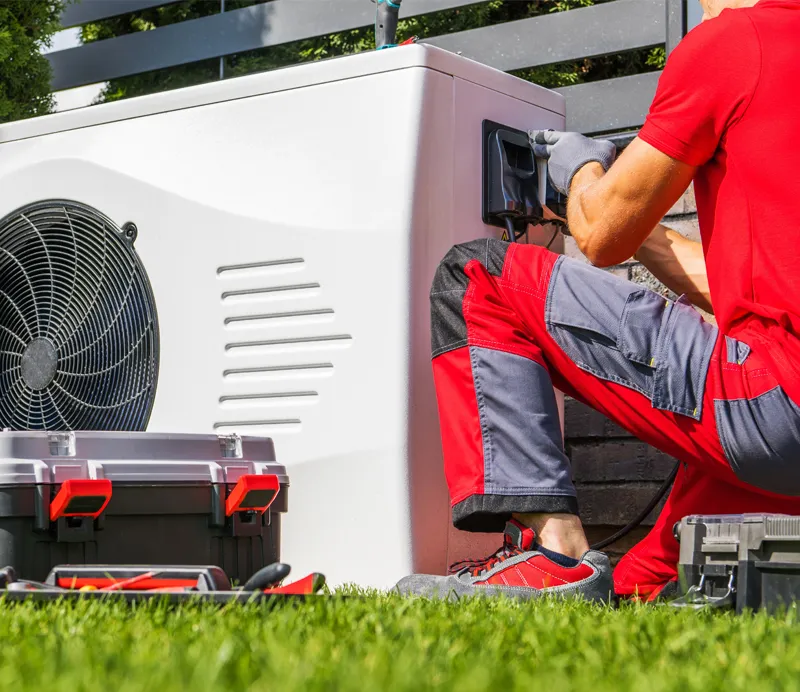How Does a Heat Pump System Work?
A heat pump system is a versatile and energy-efficient way to heat and cool your home or business. Unlike traditional HVAC systems that generate heat, heat pumps transfer heat from one place to another, making them an environmentally friendly and cost-effective choice.
Here’s a closer look at how heat pump systems work and why they’re becoming increasingly popular in homes and commercial spaces.
The Basics of Heat Pump Operation
At its core, a heat pump system moves heat rather than creating it. This transfer process relies on basic thermodynamic principles and involves four main components:
- Evaporator: This is where heat is absorbed.
- Compressor: This compresses the refrigerant, raising its temperature and pressure.
- Condenser: This releases the absorbed heat into a designated area.
- Expansion Valve: This reduces the refrigerant’s pressure, preparing it for the next cycle.
How a Heat Pump Heats Your Home
- Absorbing Heat from Outside
Even in cold weather, there is heat energy in the outdoor air, ground, or water. The heat pump extracts this energy through the evaporator coil. - Compressing the Heat
The refrigerant absorbs the heat and becomes a low-pressure gas. It then flows to the compressor, where it is pressurized, increasing its temperature. - Releasing Heat Indoors
The heated refrigerant moves to the indoor coil (condenser), where it releases the warmth into your home through air handlers or radiators. - Cycle Repeats
After the refrigerant releases its heat, it returns to a low-pressure state via the expansion valve, ready to absorb more heat from the outside.
How a Heat Pump Cools Your Home
When cooling, a heat pump works in reverse, functioning similarly to an air conditioner:
- Heat is absorbed from inside your home through the evaporator coil.
- The compressor raises the temperature of the refrigerant, allowing it to transfer the absorbed heat.
- Heat is released outside through the outdoor coil (condenser).
- Cool air is circulated back into your home, keeping you comfortable during hot weather.
Types of Heat Pump Systems
- Air-Source Heat Pumps
These are the most common type and draw heat from the air. They work well in moderate climates and are easy to install. - Ground-Source (Geothermal) Heat Pumps
These use the stable temperatures underground as a heat source or sink. While more expensive to install, they are highly efficient and have a longer lifespan. - Water-Source Heat Pumps
These extract heat from nearby water sources like ponds or lakes. They’re less common but extremely efficient in suitable locations.
Advantages of Heat Pump Systems
- Energy Efficiency: Heat pumps can deliver up to three times more energy than they consume.
- Dual Functionality: They provide both heating and cooling, reducing the need for separate systems.
- Environmentally Friendly: By transferring heat rather than generating it, heat pumps have a smaller carbon footprint.
- Lower Operating Costs: While initial installation can be higher, the energy savings over time make them a cost-effective option.
Are Heat Pumps Right for You?
Heat pump systems are ideal for those looking to reduce energy costs and minimize their environmental impact. They’re particularly effective in moderate climates but can be paired with auxiliary heating systems in colder regions.
By understanding how heat pumps work, you can make informed decisions about your home’s HVAC system and enjoy year-round comfort while saving energy.


